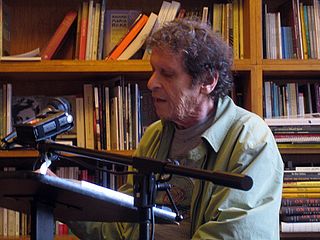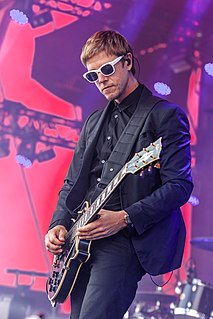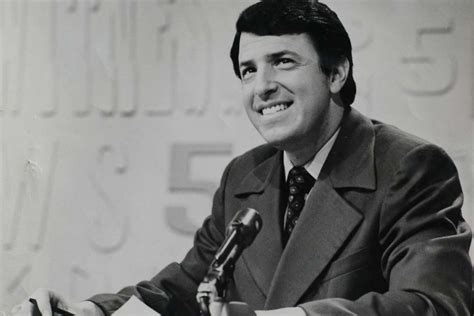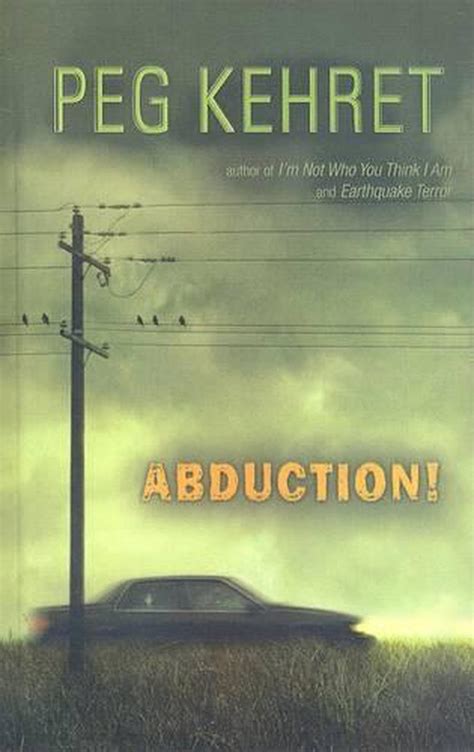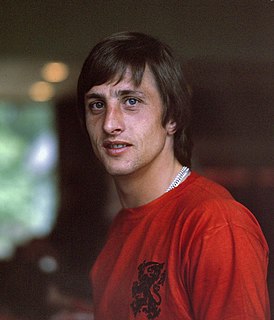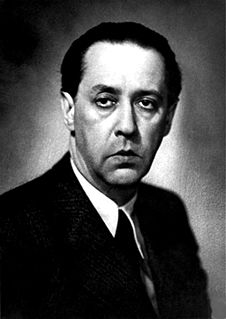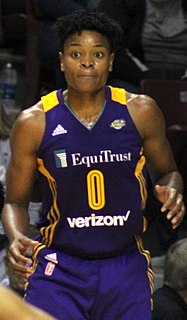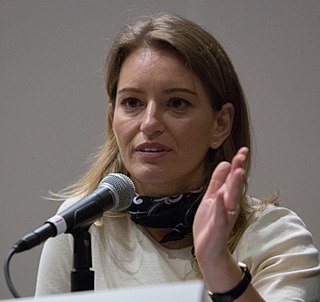Top 1200 Insight Quotes & Sayings - Page 19
Explore popular Insight quotes.
Last updated on November 22, 2024.
The unique, compelling, and earnest voice that characterizes Jedediah’s weekly columns comes alive with increased vitality in OUTNUMBERED. She shatters leftist stereotypes about conservatives and exposes the myth of liberal tolerance as she relates her interactions with liberals in everyday life. This narrative, interlaced with commentary and impressions, gives us insight into liberals that books merely about abstract principles do not capture. A fascinating read.
There is such a thing as righteous judgment, but it seems that lately the word 'judgment' has become a curse word, period. The issue isn't whether or not we're insightful enough to avoid being judgmental, but whether or not we're secure enough to accept being judged. It is inevitable for every conscious human being to judge. It may spring from insight and experience and sincerity, and in such cases, it is quite beneficial on the receiving end.
In turbulent times, in times of great change, people head for the two extremes: fundamentalism and personal, spiritual experience...With no membership lists or even a coherent philosophy or dogma, it is difficult to define or measure the unorganized New Age movement. But in every major U.S. and European city, thousands who seek insight and personal growth cluster around a metaphysical bookstore, a spiritual teacher, or an education center.
If there is one sweeping generalization I can make without fear of contradiction, it is that 'change' is the scariest word in the English language Nothing will change in our lives until we change our own behavior. Insight won't do it. Understanding why we do the self-defeating things we do won't make us stop doing them. Nagging and pleading with the other person to change won't do it. We have to act. We have to take the first step down a new road.
I say, as a singer grows older, his conception grows a little deeper, because he lives life and he understands what he is trying to say a little more. And I think this gives. If a singer tries to find out what's happening in life, it gives him a better insight on telling the story of the song he is trying to sing.
Enlightenment is always through surrender, but surrender is achieved through intelligence. Only idiots cannot surrender. To surrender you need great intelligence. To see the point of surrender is the climax of insight; to see the point that you are not separate from existence is the highest that intelligence can give to you.
The human attitude of which classical music is the expression is always the same; it is always based on the same kind of insight into life and strives for the same kind of victory over blind change. Classical music as gesture signifies knowledge of the tragedy of the human condition, affirmation of human destiny, courage, cheerful serenity.
The more repression there is, the more need there is for irreverence toward those who are responsible for that repression. But too often sarcasm passes for irony, name-calling passes for insight, bleeped-out four-letter words pass for wit, and lowest-common-denominator jokes pass for analysis. Satire should have a point of view. It doesn't have to get a belly laugh. It does have to present criticism.
It would be impossible to accept naturalism itself if we really and consistently believed naturalism. For naturalism is a system of thought. But for naturalism all thoughts are mere events with irrational causes. It is, to me at any rate, impossible to regard the thoughts which make up naturalism in that way and, at the same time, regard them as a real insight into external reality...If it is true, then we can know no truths. It cuts its own throat.
The path of compassion leads to the development of insight. But it doesn't work to say, "Ready, set, go! Be compassionate!" Beginning any practice depends on intention. Intention depends on intuiting-at least a little bit-the suffering inherent in the human condition and the pain we feel, and cause, when we act out of confusion. It also depends on trusting-at least a little bit-in the possibility of a contented, satisfied mind.
Basically, every band that makes it has some dude with some sense of business. I don't know if our band would've been so successful were it not for Daniel's [Kessler] insight into how things really work. Daniel was the one who was diligently saying, "We should make a demo, send it out, play shows but not too many shows, get on shows with touring bands that are coming to New York."
Roth Unbound is filled with intelligent readings and smart judgments. Because of the author's sympathy and sharp mind, it offers real insight into the creative process itself, and into Philip Roth's high calling as a great American artist. The book is, in some ways, a radical rereading of Roth's life and his work. It is impossible, by the end, not to feel a tender admiration for Roth as a novelist and indeed for Claudia Roth Pierpont as an empathetic and brilliant critic.
It's easy for us to feel separate from other people and from other forms of life, especially if we don't have a reliable connection to our own inner world. Without insight into our internal cycles of pleasure and pain, desires and fears, there is a strong sense of being removed, apart or disconnected. When we do have an understanding of our inner lives, it provides an intuitive opening, even without words, to the ties that exist between ourselves and others.
Whoever has not arrived at the clear insight that there might be greatness entirely outside his own sphere for which he has no understanding, whoever does not have at least a dim inkling in which area of the human spirit this greatness might be situated: he is within his own sphere either without genius, or he has not educated himself up to the point of the classical attitude.
Al Bernstein has seen cable television sports grow up. In 30 Years/30 Undeniable Truths he looks at his time in the industry through a prism that is unique to him. This book gives the reader an insight into the sometimes absurd world of television sports. There is a 31st undeniable truth: Al Bernstein is a truly funny man.
Zen purposes to discipline the mind itself, to make it its own master, through an insight into its proper nature. This getting into the real nature of one's own mind or soul is the fundamental object of Zen Buddhism. Zen, therefore, is more than meditation and Dhyana in its ordinary sense. The discipline of Zen consists in opening the mental eye in order to look into the very reason of existence.
Intuition is a combination of insight and imagination that was once attributed to spiritual communication. Mathematicians call it 'fuzzy logic,' drawing conclusions from vague or subjective input. The mind becomes aware without the direct intervention of reasoning. Once you can imagine something you can begin the process of creating it. Executives use intuition to make many product, investment, and hiring decisions, even if they deny it. Success in business may depend on an accurate gut.
While it may come as a profound surprise to those of us who are in the throes of an emotional or life crisis, the fact remains that the answer to virtually all of our problems resides within us already. It exist in the form of a vast reservoir of free-flowing energy that, when channeled to our muscles, can give us great strength and, when channeled to our brain, can give us great insight and understanding.
As regards authority I so proceed. Boetius says in the second prologue to his Arithmetic, 'If an inquirer lacks the four parts of mathematics, he has very little ability to discover truth.' And again, 'Without this theory no one can have a correct insight into truth.' And he says also, 'I warn the man who spurns these paths of knowledge that he cannot philosophize correctly.' And Again, 'It is clear that whosoever passes these by, has lost the knowledge of all learning.'
What characteristics are most important in creative workers? One quality you need is inventiveness. You need to be able to take whatever product or service you are providing and figure out ways of making it better, faster, cheaper. The other quality is empathy and insight into what people might want, even though they don't even know their wants, probably because there's no product or service to test their wants.
I used to make my living by understanding people. And the way I learned to understand them was by observing them. I would sit in a train station or a bus station or a restaurant. And I would watch people. I would watch how they related to one another. I would try to get some insight into them and make them as predictable as I could in my mind.
I have written 5 books that address major figures in our culture: books on Malcolm X, Martin Luther King Jr., Tupac Shakur, Marvin Gaye and Bill Cosby. But even in the books that take up major figures, I hope to provoke conversation, insight and understanding about these personalities by providing new, fresh and vital information and analysis about them.
To read great books does not mean one becomes ‘bookish’; it means that something of the terrible insight of Dostoyevsky, of the richly-charged imagination of Shakespeare, of the luminous wisdom of Goethe, actually passes into the personality of the reader; so that in contact with the chaos of ordinary life certain free and flowing outlines emerge, like the forms of some classic picture, endowing both people and things with a grandeur beyond what is visible to the superficial glance.
I could not write my books without the library's help. Even with the ease of Internet research, I find books to be indispensable when I am writing. ... Books make me laugh, cry, and think. They give me insight into history, and into the lives of people in other cultures. They help me make important decisions, and they provide endless entertainment. Hooray for libraries!
If one writing contributed more than any other to the framework in which this work Sowell's Knowledge and Decisions developed, it would be an essay entitled 'The Use of Knowledge in Society,' published in the American Economic Review of September 1945, and written by F. A. Hayek . . In this plain and apparently simple essay was a deeply penetrating insight into the way societies function and malfunction, and clues as to why they are so often and so profoundly misunderstood.
Those who know others are intelligent Those who know themselves have insight. Those who master others have force Those who master themselves have strength.Those who know what is enough are wealthy. Those who persevere have direction. Those who maintain their position endure. And those who die and yet do not perish, live on.
Hence there are so many kinds of love and so many kinds of compassion. But the basic, the most fundamental, is to understand this three-rung ladder of love. That will help you, that will give you an insight into where you are, what kind of love you are living in and what kind of compassion is happening to you. Watch. Beware not to remain caught in it. There are higher realms, heights to be climbed, peaks to be attained.
Reading the very best writers—let us say Homer, Dante, Shakespeare, Tolstoy—is not going to make us better citizens. Art is perfectly useless, according to the sublime Oscar Wilde, who was right about everything. He also told us that all bad poetry is sincere. Had I the power to do so, I would command that these words be engraved above every gate at every university, so that each student might ponder the splendor of the insight.
We are special in the sense that we can know our place in the cosmos. We can know our place in space. We are at least one of the cosmos's ways of knowing itself. That fills me with reverence and joy. Another insight I really want people to consider is this: everyone has gotten this far. Everyone you meet has made it this far. Nobody is superior to anyone else from an evolutionary standpoint.
If you are to be successful...you will need to be inspired. You will need to receive revelation. I will give you one piece of advice: Go to bed early and get up early. If you do, your body and mind will become rested and then in the quiet of those early morning hours, you will receive more flashes of inspiration and insight than at any other time of the day.
Be clear in your mind why learning to draw well is important. Drawing enables you to see in that special, epiphanous way that artists see, no matter what style you use to express your special insight. Your goal in drawing should be to encounter the reality of experience... to see ever more clearly, ever more deeply.
Mars and Venus and Jupiter, all of the handiwork of God was now placed in the authority of the God of the earth. And here's what He told him. He said I want you to guard it and keep out all intruders. Now that gives us a little insight on why When God made Adam all he did was made an exact imprint of himself. He duplicated himself, he was the image and from his image came himself.
The authentic rebel knows that the silencing of all his adversaries is the last thing on earth he wishes: their extermination would deprive him and whoever else remains alive from the uniqueness, the originality, and the capacity for insight that these enemies being human also have and could share with him. If we wish the death of our enemies, we cannot talk about the community of man. In the losing of the chance for dialogue with our enemies, we are the poorer.
Ultimately, Leibniz argued, there are only two absolutely simple concepts, God and Nothingness. From these, all other concepts may be constructed, the world, and everything within it, arising from some primordial argument between the deity and nothing whatsoever. And then, by some inscrutable incandescent insight, Leibniz came to see that what is crucial in what he had written is the alternation between God and Nothingness. And for this, the numbers 0 and 1 suffice.
No, the secret is that there's no reward and we have to endure our characters and our natures as best we can, because no amount of experience or insight is going to rectify our deficiencies, our self-regard, or our cupidity. We have to learn that our desires do not find any real echo in the world. We have to accept that the people we love do not love us, or not in the way we hope. We have to accept betrayal and disloyalty, and, hardest of all, that someone is finer than we are in character or intelligence.
If it were possible for us to have so deep an insight into a man's character as shown both in inner and in outer actions, that every, even the least, incentive to these actions and all external occasions which affect them were so known to us that his future conduct could be predicted with as great a certainty as the occurrence of a solar or lunar eclipse, we could nevertheless still assert that the man is free.
Over his illustrious career, John Harris has explored the most challenging bioethical questions with insight, engaging wit, and eloquence. In Enhancing Evolution, Harris does it again. He argues that it is not just an option but an obligation for people to use available biomedical technologies to enhance their own--and their children's--physical and mental abilities. Harris rightly deserves his reputation for fearlessly following his ethical arguments wherever they lead.
Meditation is making research into yourself, and into the subtler fields of activity. Day after day we culture our minds with the deep silence of our own Being. This is not the silence of a stone, but creative silence. We have to find it for ourselves. We decrease activity until silence becomes creative, and we sit in creative silence and close the gates of perception for insight into the content of life.
Harry, despite your privileged insight into Voldemort’s world (which, incidentally, is a gift any Death Eater would kill to have), you have never been seduced by the Dark Arts, never, even for a second, shown the slightest desire to become one of Voldemort’s followers!” “Of course I haven’t!” said Harry indignantly. “He killed my mum and dad!” “You are protected, in short, by your ability to love!” said Dumbledore loudly.
Black History Month is dedicated to heroes that paved the way for Black people. It's a month that's very imperative because it gives those who lack the knowledge of our heroes a chance to gain insight. It's not just about the month, it's about the years that it took for us to get to this one month and it's beyond placing a value on how much Black History Month really means to me.
When you're just starting out in the TV business, you don't know anything at all, and you think you're doing a better job than everyone else around you, and you just sort of presume that you're not getting the credit you deserve. And then when you start to get better, the pressure is extraordinary, and then you start to second-guess everything you do, and when people start looking to you for answers, for insight and for analysis and guidance, you start to wonder if you are the right person - even when you have all the information.
I want to taste and glory in each day, and never be afraid to experience pain; and never shut myself up in a numb core of nonfeeling, or stop questioning and criticizing life and take the easy way out. To learn and think: to think and live; to live and learn: this always, with new insight, new understanding, and new love.
I used to say to my classes that the ways to get insight are: to study infants; to study animals; to study primitive people; to be psychoanalyzed; to have a religious conversion and get over it; to have a psychotic episode and get over it; or to have a love affair with an old Russian. And I stopped saying that when a little dancer in the front row put up her hand and said, 'Does he have to be old?
Psychedelic experience is only a glimpse of genuine mystical insight, but a glimpse which can be matured and deepened by the various ways of meditation in which drugs are no longer necessary or useful. If you get the message, hang up the phone. For psychedelic drugs are simply instruments, like microscopes, telescopes, and telephones. The biologist does not sit with eye permanently glued to the microscope, he goes away and works on what he has seen.
[Mathematics] is security. Certainty. Truth. Beauty. Insight. Structure. Architecture. I see mathematics, the part of human knowledge that I call mathematics, as one thing - one great, glorious thing. Whether it is differential topology, or functional analysis, or homological algebra, it is all one thing. ... They are intimately interconnected, they are all facets of the same thing. That interconnection, that architecture, is secure truth and is beauty. That's what mathematics is to me.
A real love letter is made of insight, understanding, and compassion. Otherwise it's not a love letter. A true love letter can produce a transformation in the other person, and therefore in the world. But before it produces a transformation in the other person, it has to produce a transformation within us. Some letters may take the whole of our lifetime to write.
We must express the view, based on our empirical observations, that a substantial number of journalists are ignorant, lazy, opinionated, and intellectually dishonest. The profession is heavily cluttered with aged hacks toiling through a miasma of mounting decrepitude and often alcoholism, and even more so with arrogant and abrasive youngsters who substitute 'commitment' for insight. The product of their impassioned intervention in public affairs is more often confusion than lucidity.
Quite a different thing is, if a seeker, dissatisfied by materialism and doctrines, and longing for spiritual support, will ask advice and information of an adept. In such a case the adept is obliged to supply the seeker with spiritual light and insight, according to his mental powers. Then the magician should spare neither time nor pains to communicate his spiritual treasures and lead the seeker to the light.
My curiosity was in no way cruel. Deviations from the commonplace attracted me strongly, as they still do; and to me the hermaphrodite and the living skeleton were interesting for the same reason as was Creatore, or the resplendent Guardsmen of the bands - because such people did not often come my way, and I hoped that they might impart some great revelation to me, some insight which would help me to a clearer understanding of the world about me.
I would... establish the conviction that Chemistry, as an independent science, offers one of the most powerful means towards the attainment of a higher mental cultivation; that the study of Chemistry is profitable, not only inasmuch as it promotes the material interests of mankind, but also because it furnishes us with insight into those wonders of creation which immediately surround us, and with which our existence, life, and development, are most closely connected.
In its essence the Gospel is a call to make the experiment of comradeship, the experiment of fellowship, the experiment of trusting the heart of things, throwing self-care to the winds, in the sure and certain faith that you will not be deserted, forsaken nor betrayed, and that your ultimate interests are perfectly secure in the hands of the Great Companion. This insight is the center, the kernel, the growing point of the Christian religion, which, when we have it, all else is secure, and when we have it not, all else is precarious.
It is not enough to demand insight and informative images of reality from the theater. Our theater must stimulate a desire for understanding, a delight in changing reality. Our audience must experience not only the ways to free Prometheus, but be schooled in the very desire to free him. Theater must teach all the pleasures and joys of discovery, all the feelings of triumph associated with liberation.
People who turn to philosophy expecting to harvest a crop of formulas of wisdom or understanding do not understand-philosophy has such things, but they are merely incidental, not the essence of the matter. Philosophy is about subtilizing and tuning up the coherence and acuity of one's seeing, it is about opening new dimensions for insight, learning to think about what one is doing when one thinks instead of just blundering through the processes of putting thoughts together.
Words, as is well known, are the great foes of reality. I have been for many years a teacher of languages. It is an occupation which at length becomes fatal to whatever share of imagination, observation, and insight an ordinary person may be heir to. To a teacher of languages there comes a time when the world is but a place of many words and man appears a mere talking animal not much more wonderful than a parrot.
Suicide may also be regarded as an experiment - a question which man puts to Nature, trying to force her to answer. The question is this: What change will death produce in a man's existence and in his insight into the nature of things? It is a clumsy experiment to make; for it involves the destruction of the very consciousness which puts the question and awaits the answer.
I wanted to talk about certain things in a way that I hadn't seen them talked about. There is vast literature about caring for people romantically, about caring for children, but there's not a lot about caring for older people, eldercare. I was searching for a book that would speak to me, that wouldn't be sociological, that would offer some insight, some solace.
The first act of insight is throw away the labels. In fiction, while we do not necessarily write about ourselves, we write out of ourselves, using ourselves; what we learn from, what we are sensitive to, what we feel strongly about--these become our characters and go to make our plots. Characters in fiction are conceived from within, and they have, accordingly, their own interior life; they are individuals every time.







